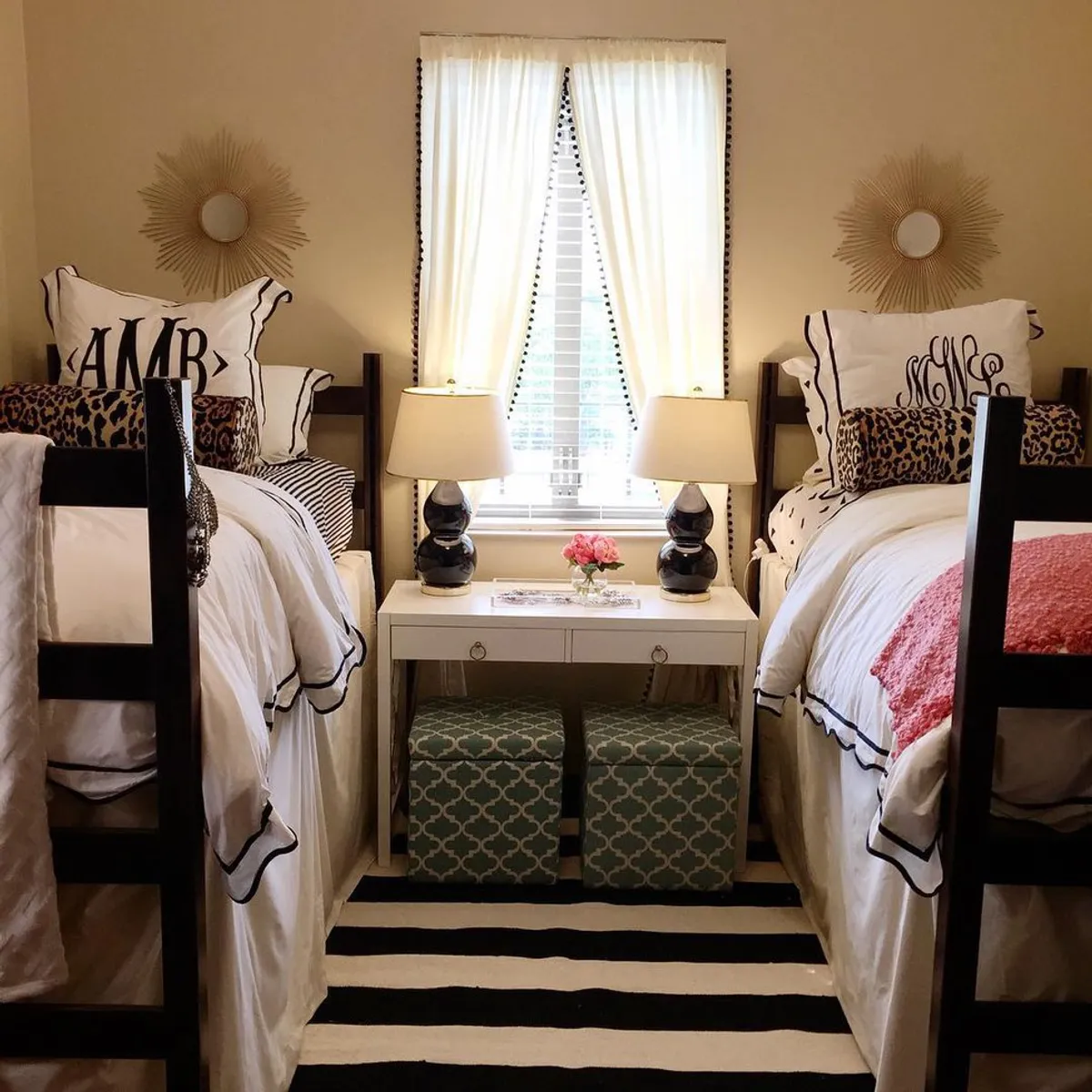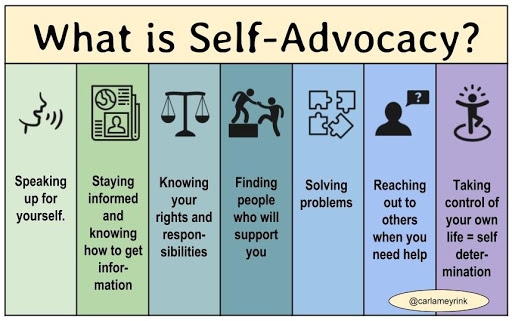How Independent are You (Really)?
by Dr. Liz, May 31, 2022

Transitioning to college in the fall? When you go away to school, you will need to be much more independent than you may be used to, both personally and academically. Take some time this summer to strengthen the skills you will need to be independent in the fall. Here are a few things to reflect on, and improve, if you are not already proficient.
Independent Living Skills
As a college student, it will be up to you to go to bed at a reasonable hour and get yourself up when you need to start the day. You decide when and how to feed yourself, bathe yourself, clothe yourself, and take care of your other personal needs. It may be the first time you are living away from home or sharing a small living space. Transitioning to college means you need to be more responsible for yourself and your belongings.
- Caring for your living space -
 Whether you are staying in your childhood room or living in a dorm or
apartment, you need to keep your space clean and organized, especially if you have a roommate. Practice
making your bed every day, keeping your desk organized, and picking your "stuff" up off the floor. Find a
place for everything and put it back in its place when you are done using it. Decide how often to empty
the wastebaskets, vacuum the floor, and clean your bathroom. Schedule those activities so they get done
regularly.
Whether you are staying in your childhood room or living in a dorm or
apartment, you need to keep your space clean and organized, especially if you have a roommate. Practice
making your bed every day, keeping your desk organized, and picking your "stuff" up off the floor. Find a
place for everything and put it back in its place when you are done using it. Decide how often to empty
the wastebaskets, vacuum the floor, and clean your bathroom. Schedule those activities so they get done
regularly. - Practicing good sleep hygiene - A good night’s sleep is important, but many people with ADHD have trouble falling asleep and/or staying asleep. Practice maintaining a regular sleep schedule, going to bed and waking up at the same time each day, even on weekends. Avoid caffeine in the late afternoon, and don’t eat big meals before bed. Turn off screens (phones, computers, and TVs) at least an hour before bed. Charge your phone outside of your bedroom or turn off the ringer and place it facedown. That way you will avoid hearing or seeing any distracting notifications. Keep your room quiet, cool, and dark. Get up independently, using whatever type of alarm works for you. Use more than one alarm if necessary, placed away from your bed if you are tempted to keep hitting snooze.
 Eating healthy - Whether or not you have access to a kitchen, practice preparing or
selecting healthy meals. Research what appliances are allowed in your living space – kettle, coffee maker,
microwave, popcorn maker, toaster oven, crock pot, pressure cooker, air fryer, mini-fridge – or what will
be provided in your kitchen such as a stove, oven, or refrigerator. Then learn to prepare healthy
meals with whatever is available. If you are allowed a kettle, you can make tea, instant oatmeal, soup,
meals packaged for camping or travel, or even find recipes online to
make your own healthy meals with
nothing but boiling water. If you have access to a microwave, you can make eggs, meat, vegetables, heat
up leftovers, or try
other healthy recipes. If you need to eat in the college cafeterias or fast-food
locations, research a few healthy options on the menu. Aim for lean proteins, fresh fruits, steamed
vegetables, and whole grains.
Eating healthy - Whether or not you have access to a kitchen, practice preparing or
selecting healthy meals. Research what appliances are allowed in your living space – kettle, coffee maker,
microwave, popcorn maker, toaster oven, crock pot, pressure cooker, air fryer, mini-fridge – or what will
be provided in your kitchen such as a stove, oven, or refrigerator. Then learn to prepare healthy
meals with whatever is available. If you are allowed a kettle, you can make tea, instant oatmeal, soup,
meals packaged for camping or travel, or even find recipes online to
make your own healthy meals with
nothing but boiling water. If you have access to a microwave, you can make eggs, meat, vegetables, heat
up leftovers, or try
other healthy recipes. If you need to eat in the college cafeterias or fast-food
locations, research a few healthy options on the menu. Aim for lean proteins, fresh fruits, steamed
vegetables, and whole grains. - Managing your money -
 Practice setting up and staying within a budget. Microsoft
Excel and Google Sheets both have budget templates where you can plug in your income and your expenses
and track your finances. Go online and check your credit and/or debit card balances and see where your
money is going. Try and move some money to savings each month!
Practice setting up and staying within a budget. Microsoft
Excel and Google Sheets both have budget templates where you can plug in your income and your expenses
and track your finances. Go online and check your credit and/or debit card balances and see where your
money is going. Try and move some money to savings each month!  Doing your laundry -
Learn to do your own laundry! Decide how often you need to wash your clothes,
your sheets, your towels. Create a laundry schedule and stick to it. Know how much laundry can fit
safely in the washer and what settings to use with which type of clothes. Pay attention to any clothes
that should NOT be put in the washer or drier! Will you use liquid or powdered detergent or pods? Will
you need bleach, fabric softener, or drier sheets? Research your school’s laundry facilities. How far is
the laundry room from where you will be living? Will you need a basket, a hamper,
or a laundry bag to carry
everything? Do you need quarters for the machines or your ID card to enter
and use the laundry room? Will you
need your own iron or ironing board? Be sure to practice ironing any clothes
that might need pressing.
Doing your laundry -
Learn to do your own laundry! Decide how often you need to wash your clothes,
your sheets, your towels. Create a laundry schedule and stick to it. Know how much laundry can fit
safely in the washer and what settings to use with which type of clothes. Pay attention to any clothes
that should NOT be put in the washer or drier! Will you use liquid or powdered detergent or pods? Will
you need bleach, fabric softener, or drier sheets? Research your school’s laundry facilities. How far is
the laundry room from where you will be living? Will you need a basket, a hamper,
or a laundry bag to carry
everything? Do you need quarters for the machines or your ID card to enter
and use the laundry room? Will you
need your own iron or ironing board? Be sure to practice ironing any clothes
that might need pressing.
Self-Advocacy Skills
For students with ADHD and/or learning disabilities, self-advocacy means you can demonstrate an understanding of your disability, are aware of your legal rights, and are able to competently communicate your rights and needs to people in positions of authority. Students with good self-advocacy skills are more likely to be successful at college.

- Asking for help - Practice getting help when you need it, especially with any of these news skills you are trying to learn. Find a video or online instructions that may be helpful. Soon you will need to be speaking up to professors, administrators, peers, classmates, and possibly roommates. Roleplaying with a parent or a friend can help you get comfortable asking for what you need, as can making notes of what you want to say before an important phone or video call.
- Finding your college’s ODS - Locate the webpage for your school’s Office of Disability Services (ODS), though it may be called something else, such as Accessibility Services, Disability Resource Center, or Accessible Education Office. See what types of accommodations are available and how to get registered with the office. Note what documentation is required and start compiling it. Make an appointment during the summer if you can – once school starts there will be many students looking for appointments and you want your accommodations set up as soon as possible. Register with the Office even if you think you won’t need or use accommodations. It is good to have them ready to go just in case.
- Researching your college’s supports - Investigate the different places on campus where you can get help. For health-related needs, there may be a Student Health Services office, as well as Counseling services. Look for wellness activities or classes that may be offered. For staying fit, checkout the athletic centers and facilities. Research clubs that help you stay active (hiking, rock-climbing, ultimate frisbee, etc.) and courses that keep you moving (dancing, yoga, self-defense, tai chi, etc.). For academic help, there will be some type of Writing Center as well as centers for other specific subjects (languages, math, computers, etc.). https://adhdincollege.com/post3.htmlCheck out what resources are provided in the library, and if there are tutors or coaches available.
Time Management Skills
 College is a whole new world in terms of your time. Compared to high school, there is less structure and
significantly more free time. You need to manage your time to ensure you get assignments and studying
done but to also have some fun and relaxation. Practice setting a schedule and sticking to it. Find the
way that works best for you – a wall calendar, an electronic schedule, a planner, or all three! Use alarms or timers to help you transition between activities and to remember appointments.
Finding the perfect tools during the summer means you are ready to go when school starts. Get in the
habit of scheduling EVERYTHING to get used to having daily structure.
College is a whole new world in terms of your time. Compared to high school, there is less structure and
significantly more free time. You need to manage your time to ensure you get assignments and studying
done but to also have some fun and relaxation. Practice setting a schedule and sticking to it. Find the
way that works best for you – a wall calendar, an electronic schedule, a planner, or all three! Use alarms or timers to help you transition between activities and to remember appointments.
Finding the perfect tools during the summer means you are ready to go when school starts. Get in the
habit of scheduling EVERYTHING to get used to having daily structure.
Becoming Self-sufficient
 Practicing these skills will help you become more independent, so you are ready to transition to college.
Prepare a meal for family or friends, including doing the food shopping AND the cleaning up afterwards.
Offer to wash ALL the family sheets or towels one week. Start making your own doctor, dentist, and other
appointments. Take charge of yourself and your needs. Showing off your preparation skills and
self-sufficiently will help you feel better about yourself and help your parent(s) feel better about
watching you “fly from the nest.” Just think of all the calm in your house once your parents no
longer have to nag you about everything! It will all be worth it in the end.
Practicing these skills will help you become more independent, so you are ready to transition to college.
Prepare a meal for family or friends, including doing the food shopping AND the cleaning up afterwards.
Offer to wash ALL the family sheets or towels one week. Start making your own doctor, dentist, and other
appointments. Take charge of yourself and your needs. Showing off your preparation skills and
self-sufficiently will help you feel better about yourself and help your parent(s) feel better about
watching you “fly from the nest.” Just think of all the calm in your house once your parents no
longer have to nag you about everything! It will all be worth it in the end.
Sources:
Children and Adults with Attention-Deficit/Hyperactivity Disorder (CHADD). (n.d.).
Help Your Teen Transition from High School to College. Retrieved from Children and Adults with Attention-Deficit/Hyperactivity Disorder (CHADD):
https://chadd.org/adhd-news/adhd-news-caregivers/help-your-teen-transition-from-high-school-to-college/
College Parents of America. (2019, March 7). Basic Life Skills Your Student Needs Before Going To College. Retrieved from College Parents of America:
https://collegeparents.org/2019/03/07/basic-life-skills-your-student-needs-before-going-to-college/
Kantor, M. (2022, April 28). Good to Go (to College). Retrieved from ADDitude Magazine:
https://www.additudemag.com/adjusting-to-college-with-adhd/?utm_source=eletter&utm_medium=email&utm_campaign=parent_may_2022&utm_content=050722&goal=0_d9446392d6-5b7956a6d2-312406582
Images:
Dorm Room: https://www.theodysseyonline.com/12-ways-to-spring-clean-your-dorm-room
Healthy Food: https://www.businessinsider.com/best-diet-how-to-eat-healthy-2015-11
Budget: https://www.moneyunder30.com/budgeting-in-your-twenties
Laundry: https://www.mommymusings.com/how-to-do-laundry-like-a-pro/
Self-Advocacy: https://teachingexperiment.com/2020/05/lessons-from-virtual-learning-teaching-self-advocacy/
Planner: https://www.addessories.com/add-organization-tips/
Smiling Student: Photo by Andrea Piacquadio: https://www.pexels.com/photo/woman-in-yellow-jacket-holding-books-3762800/
Specific questions and topic suggestions can be emailed to questions@ADHDinCollege.com.